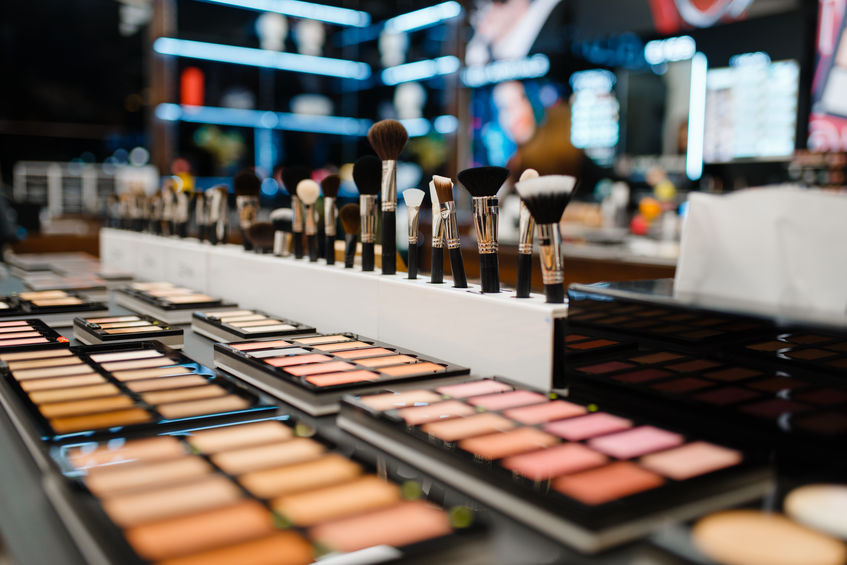Beauty sector in very good health.

Upmarket department store Selfridges has unveiled its new Beauty Hall after a 12-month multi-million pound overall that highlights the increasing attraction of health & beauty within the retail sector, which continues to outperform other categories.
The smart new department now houses 300 brands along with more than 200 beauty services that are delivered by over 1,000 beauty experts and is underpinned by a focus on technology and sustainability. State-of-the-art LED lighting contributes to an optimal environment for highlighting shades and enhances the sustainably-made counters that sit alongside space that has been allotted for digital totems, which enable large format digital content concepts.
David Legrand, lifestyle director at Selfridges, stated: “Our new architecture is game-changing, prioritising sight-lines for clear views, better navigation and enhanced accessibility. Embracing our ethos of beauty at Selfridges, 74 brands now offer more than 2,500 refill options, with a commitment for all brands to incorporate refills by 2025.”
The hall also has some theatre injected into it through a retail concept called The Beauty Spot that hosts exclusive brand residencies. The first brand to command the space is REFY that will host exclusive events during its four-month residency.
Such commitment to the in-store experience is evidence of the attraction of physical space within the health & beauty segment. It is the fastest-growing segment of leasing deals in Europe, according to analysis by Cushman & Wakefield of over 2,000 transactions, which found a 57% year-on-year growth in the number of deals completed in 2023. This doubled the floorspace taken by the category across Europe.
Brands such as Rituals, Rossman, Kiko and Douglas were notably acquisitive in 2023, which helped the health & beauty sector account for 10% of deals and 7% of space take-up. Other brands investing in physical space include Boots, Superdrug and Sephora that are each adding treatment rooms and beauty services, which includes skincare advice from experts into their units.
Aaron Chatterley, co-founder & president of new teenage beauty brand Indu, founded Feelunique and that was predominantly online – with only a handful of stores – but interestingly its purchase by Sephora very much involves a strategy that is now built around opening stores.
“The purchase was all about moving to a stores business so it has very much become an omni-channel business. The reality is that people are back on the high street, or certain high streets,” he says, adding that they are very much shopping for health & beauty.
This can be seen by the fact the beauty segment was one of the fastest growing categories across 2022/23 with the top five operators in the UK collectively adding £1 billion of sales during the year, according to Retail Navigator, as the purchase of affordable luxuries has outpaced other products during the cost-of-living crisis.
Heading up the pack is Boots that opened its first beauty-only store, in London’s Battersea Power Station at the end of 2023 and there is a further commitment to the category through its planned expansion of 30 more beauty halls having completed refurbishments in 170 stores so far. It is also launching 25 new beauty brands into all its stores by the end of the summer that will boost its existing offer of over 500 brands.
Alice Rafferty, director of luxury beauty and cosmetics at Boots, states: “It is such an exciting time to be a beauty lover…as the home of beauty on the high street we are committed to bringing the very best of beauty to our customers.”
The demand for high-end cosmetics and fragrances has been just as buoyant as it has been for more affordable brands as shown by the performance of the 10 Prestige brands at Unilever that include within skincare Tatcha and Dermalogica, in make-up it has Hourglass and in haircare there is Living Proof. The Prestige division has delivered 13 consecutive quarters of double-digit sales growth up to the first quarter of this year, which has led Vasiliki Petrou, chief executive of Unilever Prestige, to suggest: “Beauty is recession-proof.”
It’s a similar story at Spain-based Puig, which is benefiting from the acquisitions it has made in the luxury beauty segment that have included Charlotte Tilbury and Dr Barbara Sturm. Recent product launches from other brands in its growing portfolio include Gaultier’s Divine perfume, packaged in a gold bottle, and Rabanne make-up aimed at the Gen Z market.
